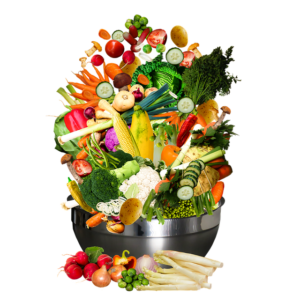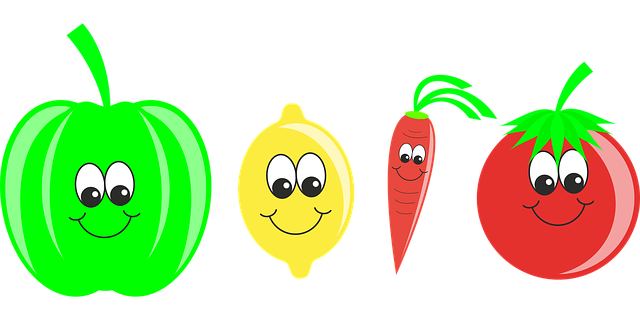Unlocking the Power of Nutrition
Unlocking the Power of 5 Nutrition ,Discover the secrets of nutrition and how it can transform your health. This article covers everything from macronutrients and micronutrients to weight management, nutrition myths, and more,
Thank you for reading this post, don't forget to subscribe!
The Power of Nutrition
Introduction:
Nutrition is important for good health and well-being. What we eat directly impacts our physical and mental health. This article explores the essential components of nutrition, the importance of a balanced diet, and how proper nutrition can contribute to a healthier and happier life. Nutrition is the science of how food and nutrients affect our health and well-being. It involves studying the components of food, such as carbohydrates, proteins, fats, vitamins, and minerals, and how they impact our body’s functions. Proper nutrition is necessary for maintaining good health and preventing various diseases.

Type of Nutrients:
There are two types of nutrients.
- Macronutrients
- Micronutrients
Macronutrients:
These are the nutrients you use in the largest amounts. Macronutrients are the nutritive components of food that the body needs for energy and to maintain the body’s structure and systems. Macronutrients include Carbohydrates, protein and fats. Macronutrients are the building blocks of the body. Protein repairs our body growth. Carbohydrates provide us energy to do work. fats support various body functions. Their intake is essential for body growth .e.g. Carbohydrates, protein Fats etc.
Micronutrients:
Micronutrients are vitamins and minerals that are needed by our body in very small amounts. But their impact on a body’s health are critical, and deficiency in any of them can cause severe problems and even lead to life-threatening conditions .e.g. Vitamins, minerals , etc.
Benefits of Nutrition:
. live longer:
The benefits of good nutrition is that we live long . When we eat a healthy diet it has a good impact on our health and it keeps us healthy and fit.
. Impact on skin , teeth and eyes:
Nutrition also has a good impact on eyes, skin and teeth. The vitamins and minerals are essential for eyes, skin and teeth that we get from these nutrients .The deficiency of these minerals intensively affect our skin, teeth and eyes.
. Supports muscles:
We get energy from nutrition and nutrition supports our body and muscles. The carbohydrates are energy providing nutrients and these macronutrients provide support to our muscles.
. Boosts immunity:
The Macronutrients like protein play an important role in boosting immunity. Protein protects our immune system from bacteria and viruses.
. Strengthens bones:
These micro and macro nutrients that are included in our diet strengthen our bones. Provide strength. Make them strong.
. Lowers risk of heart disease:
Balanced nutrition keeps us away from heart diseases. Make us fit and healthy.
. Diabetes and cancers:
Healthy Diet protects us from diabetes and cancer. The diabetes patient eats a diet which has less sugar . The cancer patients also make a diet plan for their to protect him/her from severe conditions.
.Supports healthy pregnancies and breastfeeding:
During pregnancy a healthy diet keeps the baby and mother both healthy and fit. Healthy diet is also beneficial for breastfeeding.
.Helps the digestive system function:
Nutrition helps our digestive system to perform their functions properly.
. Nutrition and Mental Health:
Eating high-quality foods that contain vitamins, minerals and antioxidants will nourish the brain in a positive way.she says. A diet high in processed foods and refined sugars can impair brain function and worsen mental health symptoms.
Tips for Balance Diet:
1.Meal planning and portion control 2.Making healthy choices when dining out.
3.Base your meals on higher fibre starchy carbohydrates
4.Eat lots of vegetables and fruits.
5.Eat more fish, also a portion of oily fish.
6.Cut down on saturated fat and sugar.
7.Eat less salt: not more than 6g a day for adults.
8.Get active and be a healthy weight.
9.Drink water 8 glasses daily.
10.Do not skip breakfast.
Nutrition for Different stages:
1.Babies Diet needs:
Babies need about 10 grams a day.
2.School kids Diet needs:
School-age kids need 19-34 grams a day.
3.Teenager boys diet needs:
Teenage boys need up to 52 grams a day.
4.Teenager girls diet needs:
Teenage girls need 46 grams a day.
5.Adult men diet needs:
Adult men need about 56 grams a day.
6.Adult women diet needs:
Adult women need about 46 grams a day (71 grams, if pregnant or breastfeeding)
Important Nutrients for diet:
There are seven main classes of nutrients that the body needs. These are:
1.carbohydrates
2.proteins
3.fats
4.vitamins
5.minerals
6.fibre and
7.water
It is necessary that everyone consumes these seven nutrients on a daily basis to help them build their bodies and maintain their health.
Healthy nutrition:
Healthy nutrition includes a variety of fruits, vegetables, whole grains, lean proteins like chicken, fish, and beans, and healthy fats like those found in nuts and avocados. It’s essential to have a balanced diet with plenty of nutrients and limit processed foods, sugary snacks, and excessive amounts of saturated fats and sodium. It’s always a good idea to consult with a healthcare professional or nutritionist for personalised dietary recommendations.

Special diet:
Certain diets cater to specific health needs or personal preferences:
1.Vegan:
Excludes all animal products, including dairy products and eggs.
2.Gluten-Free:
Eliminates gluten-containing foods and is important for those with celiac disease.
3.Keto:
High-fat, low-carb diet that may help with weight loss and managing some medical conditions.
4.Paleo:
such as lean meats, fruits, and vegetables.
5.Mediterranean:
Heart-healthy diet rich in olive oil, whole grains, and fish.
Hydration:
The Importance of Hydration, In addition to food, water is a vital part of nutrition. Staying well-hydrated is essential for digestion, circulation, and temperature regulation. Aim for at least 8 glasses of water a day, and adjust based on your activity level and climate.
Taking daily Supplement:
Taking supplements daily can be beneficial, but it’s important to consult with a healthcare professional to determine which supplements, if any, are appropriate for your individual health needs and to ensure you’re taking them safely. Common supplement:
Common supplements Include vitamins, minerals, and omega-3 fatty acids, but the specific ones you should take may vary based on your diet, age, and any underlying health conditions.

Conclusion:
In short, Nutrition plays a vital role in our lives, impacting not only our physical health but also our mental well-being. By understanding the basics of nutrition and making informed choices, we can take charge of our health and enjoy a higher quality of life. In summary, nutrition is the foundation of good health. A well-balanced diet provides the necessary nutrients to support bodily functions, prevent disease, and enhance both physical and mental health.It’s important to make informed choices about the foods you consume and to consult with a healthcare professional or a registered dietitian for personalised nutrition advice.
FAQ:
Here are some questions related to diet, along with their answers:
1.What is a diet?
Ans. Diet is the collection of food and beverages that an individual regularly consumes to meet their nutritional needs
- What is the purpose of a diet?
Ans. The main purpose of a diet is to provide the body with essential nutrients, energy, and maintain overall health and well-being.
3.What is a balanced diet?
Ans. Balanced diet is one that includes a variety of foods from different food groups to ensure you get all the necessary nutrients in the right quantities.
- How can I create a healthy diet plan?
Ans. We create a healthy diet plan by starting with a variety of fruits, vegetables, whole grains, lean proteins, and healthy fats. Monitor portion sizes and stay hydrated.
5.What is the difference between a fad diet and a sustainable diet?
Ans. Fad diets promote quick weight loss through extreme restrictions and are often unsustainable.
A sustainable diet focuses on long-term health and gradual, maintainable changes.
6.How can I lose weight through dieting?
Ans.Weight loss can be done by consuming fewer calories than you burn. This is often done by reducing portion sizes, choosing healthier foods, and increasing physical activity like daily exercise.
7.Are there specific diets for different health conditions?
Ans. Yes, lots of diets are designed to manage specific health conditions, such as the DASH diet for hypertension or the Mediterranean diet for heart health.
- Is it necessary to count calories to maintain a healthy diet?
Ans. Not necessarily Counting calories is one approach, but it’s not necessary for everyone. Focus on the quality of the food you eat, portion control, and overall balance.
9.How can I deal with emotional eating?
Ans.By managing emotional eating, it’s important to identify triggers, find alternative coping strategies, and seek support from a therapist or counsellor if needed.
10.What role does hydration play in a healthy diet?
Ans.Hydration is essential for overall health. It helps with digestion, energy levels, and can aid in weight management. Aim to drink plenty of water throughout the day. Drink almost 8 glasses of water daily.
Feel free to ask more questions or seek specific information about diet and nutrition!
